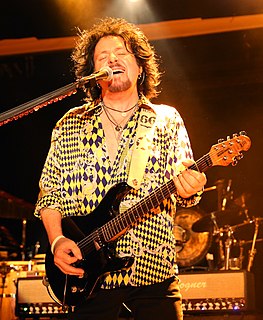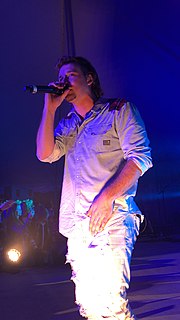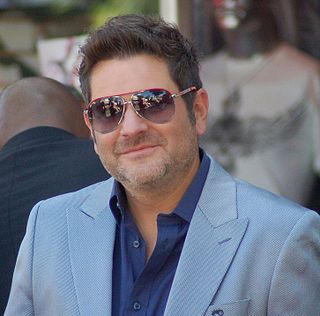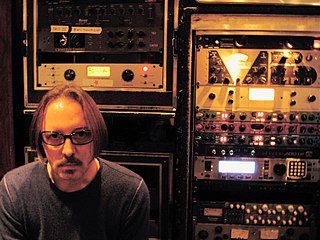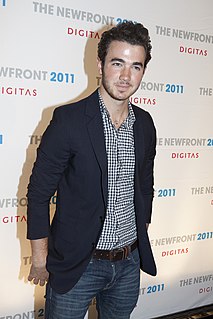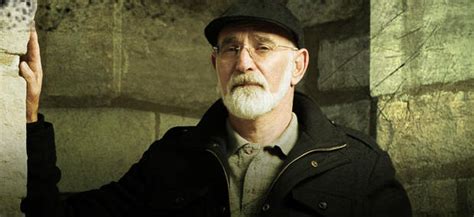A Quote by Steve Lukather
Vocally and stylistically, we'd have different kinds of songs come on the radio, and people didn't realize it was the same band. A lot of the time, a casual fan would come see us and go, 'I didn't know that you guys did that song. I didn't know that was you!' That was us!
Related Quotes
I think the big thing for Simple Plan is that we were able to keep the band members, the same five guys, the same lineup from the start. That's not easy. We grew up together. We're friends. We come from the same world. We've always had the same dreams and goals. I think we realized, as the years go by, how precious it is to have that, to build that, to see so many bands break up... it makes us realize how different we are to all that. We're really proud of that.
I watch the best. I'm a big fan of Elvis. I'm a big fan of 1950s Elvis when he would go on stage and scare people because he was a force and girls would go nuts! You can say the same thing for Prince or The Police. It's just guys who know that people are here to see a show, so I watch those guys and I love studying them because I'm a fan.
It's just a lot of fun to be able to see your ideas come into fruition. And to see people translate the things that come out of my mind vocally. And to be able to produce vocals and give people my point of view musically. And to be able to sit in the crowd and see people sing the song that I wrote, it's an amazing feeling.
The power of a label and radio and a booking agency and all that - you never know until you experience it the first time, but being able to have a song on radio, but then go play a show for people that have heard the song on radio, and having it sung back to you, is - I don't know how to describe it.
Young people are going to go to someone, somewhere. And we had better see that that 'someone' is us when the opportunity is ours, for there will come a time when we will wish they would come, and do we know but that the interruption we now impatiently put off may be the most important thing we could be doing at this particular time?
'Boneless,' even though we were thinking about servicing it to radio, it made more sense putting a vocal on there. This was actually the first time that I really looked at doing a song for radio and kind of let go of some control and listened to a lot of different radio pluggers and had Ultra come in and help out with ideas.
I'd work on Garbage or I'd edit a song or writing here, but I was able to do a lot of things with my family. There are things outside of Garbage, the whole band has come to realize that we need things like that. That's why we took that break. Garbage had swallowed us up and had become a full time obsession for us and we needed to escape that and reclaim our old lives.
I wrote 'Turn Your Radio On' in 1937, and it was published in 1938. At this time radio was relatively new to the rural people, especially gospel music programs. I had become alert to the necessity of creating song titles, themes, and plots, and frequently people would call me and say, 'Turn your radio on, Albert, they're singing one of your songs on such-and-such a station.' It finally dawned on me to use their quote, 'Turn your radio on,' as a theme for a religious originated song, and this was the beginning of 'Turn Your Radio On' as we know it.
If Jesus is a teacher only, then all He can do is to tantalize us by erecting a standard we cannot come anywhere near. But if by being born again from above we know Him first as Savior, we know that He did not come to teach us only. He came to make us what He teaches we should be. The Sermon on the Mount is a statement of the life we will live when the Holy Spirit is having His way with us.
Why, Tom - us people will go on livin' when all them people is gone. Why, Tom, we're the people that live. They ain't gonna wipe us out. Why, we're the people - we go on.' 'We take a beatin' all the time.' 'I know.' Ma chuckled. 'Maybe that makes us tough. Rich fellas come up an' they die, an' their kids ain't no good, an' they die out. But, Tom, we keep a-comin'. Don' you fret none, Tom. A different time's comin'.
A lot of times, when doing the paranormal research and doing an investigation, you don't know what you're going to encounter. You don't know what you're going to come up against. People have to realize that we don't know them and they don't know us. I'm talking about the people that live in the homes. Sometimes you don't know what you're going to encounter, what type of situation you're going to walk into.
